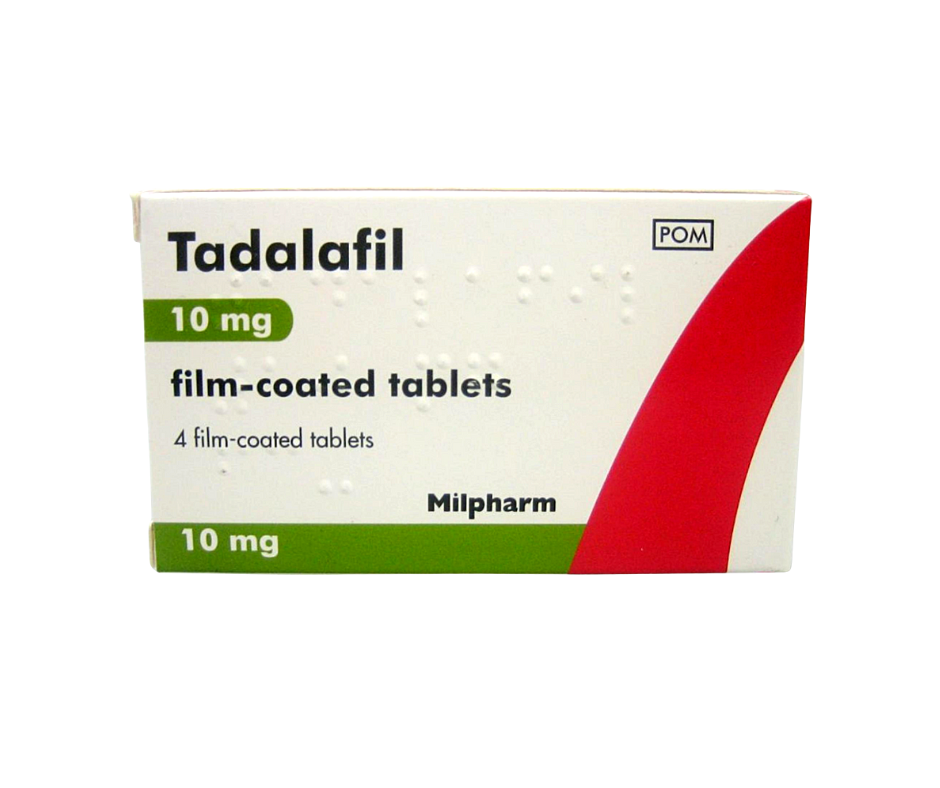Tadalafil vs Sildenafil – Which is the Best ED Medication?
Erectile dysfunction (ED) is a condition that affects millions of men worldwide. It can be a sensitive topic to talk about, but there are several effective treatments available. Two of the most popular medications for ED are Tadalafil and Sildenafil. In this article, we’ll examine the differences between these two very popular treatments and help you determine which one may be right for you.
It’s important to not however that the choice of medicine that you are prescribed is ultimately decided by your Doctor as they are the medical expert. They will assess which medicine is right for you.

How Do Tadalafil and Sildenafil Tablets Work?
Tadalafil and sildenafil are both phosphodiesterase type 5 (PDE5) inhibitors, meaning they block the enzyme PDE5 in the body. By doing so, they increase blood flow to the penis, making it easier to achieve and maintain an erection. However, these medications do not work unless the person is sexually aroused.
Sildenafil

Sildenafil was first introduced in 1998 and is the active ingredient in Viagra. It is taken in tablet form and typically starts working within 30 to 60 minutes. The effects of Sildenafil can last up to four hours. It is recommended that Sildenafil is taken on an empty stomach to ensure full effectiveness.
The recommended starting dose for Sildenafil is 50mg, but this can be adjusted depending on the person’s needs. The maximum recommended dose is 100mg per day. Side effects of Sildenafil can include headaches, nausea, dizziness, hot flushes, and blurred vision.
Tadalafil

Tadalafil is the active ingredient in the medication Cialis. It was introduced in 2003 and is taken in tablet form. Tadalafil typically starts working within 30 minutes, but it can be effective for up to 36 hours. Unlike Sildenafil, Tadalafil can be taken with or without food.
The recommended starting dose for Tadalafil is 10mg, but this can be adjusted depending on the person’s needs. The maximum recommended dose is 20mg per day. Side effects of Tadalafil can include headaches, nausea, a red or flushed face, indigestion, stuffy nose, and muscle aches.
Which Is Better: Tadalafil or Sildenafil?
Both Tadalafil and Sildenafil are effective treatments for ED, but there are some differences to consider. The main advantage of Tadalafil is its longer duration of action. This means that you can take it in the morning and be confident that it will still be effective later in the day or even the next day. On the other hand, Sildenafil may be a better choice if you only need it occasionally or if you prefer a shorter duration of action.
Another factor to consider is how quickly the medication starts working. Sildenafil typically starts working slightly faster than Tadalafil. However, the difference is not significant, and both medications should start working within an hour.
Finally, the cost may also be a consideration. Sildenafil is available in both branded and generic forms, and generic Sildenafil is often less expensive than generic Tadalafil. Click here if you’d like to compare the costs of all Ed Treatments, including Vardenafil, Avanafil and Alprostadil.

Consult our Doctor at Pharmacy Direct GB
Ultimately, the best way to determine which medication is right for you is to consult our doctor. You can start a short online consultation and at the end of it, you can opt to have a virtual consultation with them, to discuss the pros and cons of Tadalafil vs Sildenafil. Or, if you’d like to reach out to us now to talk about it with our highly qualified pharmacists, privately and confidentially, just pick up the phone and call us.
To concluded, Tadalafil and Sildenafil are both highly effective medicines for the treatment of ED. They work in a similar way, but there are some differences to consider, such as duration of action, speed of onset, and cost. Consult our doctor to determine which medication is right for you.
This blog post was written on behalf of PharmacyDirectGB by Pharmacy Mentor.
This blog post was written on behalf of PharmacyDirectGB by Pharmacy Mentor. The content of this article is intended solely for informational purposes and should not be interpreted as medical advice. The information provided here is not meant to replace or serve as professional medical guidance. It’s important to consult with your physician to understand the risks and rewards of any treatment before proceeding.




